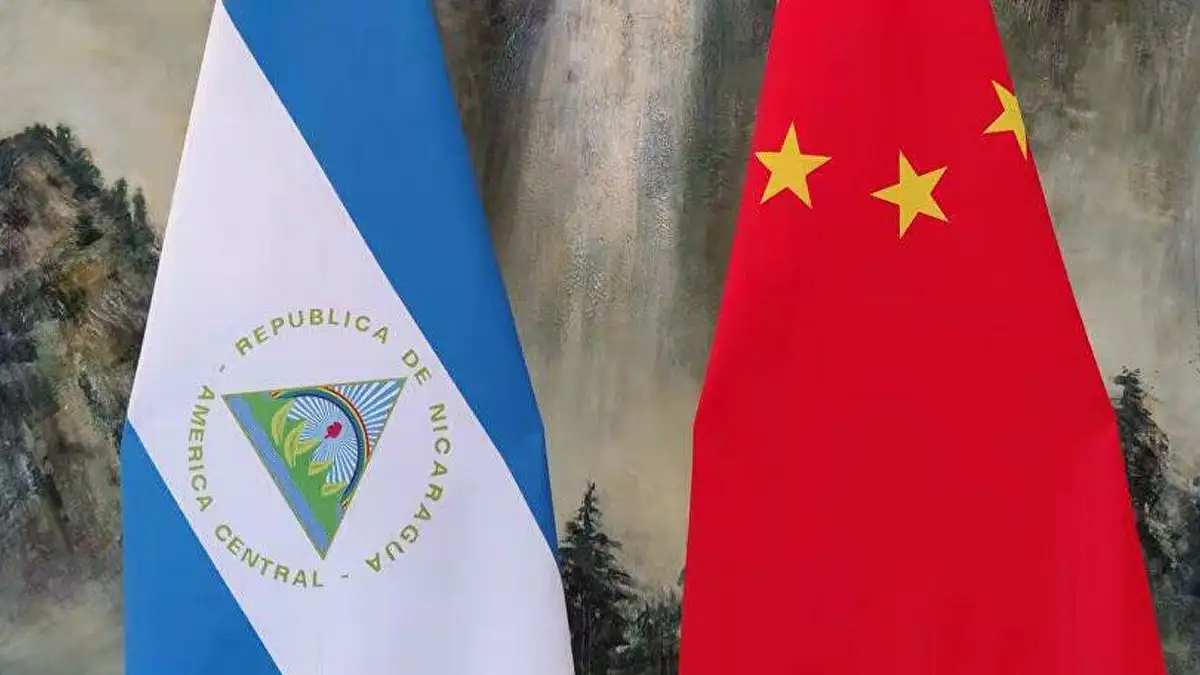Jesús Bermúdez, September 6th 2023

The reestablishment of diplomatic relations between the People's Republic of China and the Republic of Nicaragua in 2021, has been one of the main strategic decisions that our Government of Reconciliation and National Unity, with the leadership of Commander Daniel Ortega and Comrade Rosario Murillo, has adopted in recent years. We must thank President Xi Jinping for this new impetus to bilateral relations between China and Nicaragua.
This renewed relationship, led by the Communist Party of China (CPC) and the Sandinista National Liberation Front (FSLN), results in a growing cooperation that is enriched every day, creating spaces for a wide range of sectors and issues in the political, economic, social and cultural spheres.
This is how the Free Trade Agreement between the People's Republic of China and the Republic of Nicaragua was born, a state-of-the-art trade agreement the objective of which is the mutual benefit of both countries and peoples.
Nicaragua is a small country, with an open economy, with a stable macroeconomy and great opportunities for investment and trade; with more than 12 trade and economic integration agreements in force, covering more than 50 countries of the world and 1,400 million consumers. Its privileged position in the center of the American continent facilitates its preferential and non-preferential trade with different countries of the world.
Nicaragua in 2022 exported to the world 7,359 million dollars and imported 11,246 million dollars. Bilateral trade with China in that year was $39 million in exports and $1.391 billion in imports. This means that China without FTA, is already our third supplier of intermediate goods, capital goods and consumer goods. Therefore, one of China's main challenges with the FTA will be to become the main supplier of raw materials, intermediate goods, capital goods and consumer goods that our country does not produce.
With the FTA that will enter into force in January 2024, we also expect Nicaragua's exports to be boosted. 91% of what we currently export to the world will be able to enter the Chinese market with tariff preferences, 71% of those goods will do so immediately upon the entry into force of the FTA with 0% tariff and the remaining 24.3% of goods (not including exclusions - 4.7%) will reduce its tariff in the coming 5 and 15 years, among these products there are also goods that our country produces competitively and can be exported to China. Nicaragua hopes to achieve significant export levels so that over time the bilateral trade deficit will be considerably reduced.
Another challenge for Nicaragua in this Agreement is to be able to significantly increase investment flows from China. We hope that Chinese investors can take advantage of the great opportunities that have opened up with the FTA in sectors such as agribusiness, industry, fisheries and aquaculture, tourism, construction, telecommunications, energy, finances, free zones and logistical services, among others. In addition, we are confident that Chinese investors will see Nicaragua as a platform that will allow them to take advantage of the preferential trade it already has through its network of trade agreements covering more than 1.4 billion consumers.
A sample of the goods that Nicaragua will be able to export to China with tariff preferences is the following: beef and meat offal, textiles, automotive harnesses, fish, shrimp, lobsters, sea cucumbers, peanuts, rum, beer, vaccines, hides, wood, fish fillets, leather footwear, sea snails, bananas, plantains, cocoa beans, precious metals, dairy products, tomatoes, potatoes, cabbage, lettuce, cassava, sesame oil, among other products.
On the other hand, China may export to Nicaragua with tariff preferences, the following: fertilizers, insecticides, plastic products, chemical products, cell phones, computers, integrated circuits, electric accumulators, photovoltaic panels, televisions, lighting equipment, video game consoles, dried vegetables, vegetable waxes, marble, granite, veterinary drugs, rodenticides, herbicides, paints, varnishes, perfumes, processed leathers, bamboo, cables, thighs and frozen chicken legs, canned, dehydrated soups, makeup and toiletries, vehicles, tires, machinery and equipment, among others.
The FTA between China and Nicaragua is an instrument that, if well used by the parties, governments and businessmen of both countries, can become an instrument of sustainable development in the medium and long term. China is a strategic partner of vital importance for Nicaragua from the political and economic point of view, with which medium and long-term development plans can be drawn-up aimed at eradicating poverty, increasing scientific and technical cooperation, shared development and building a stable and peaceful multipolar world.
The FTA between China and Nicaragua is a concrete example of the rapprochement that China has been promoting with Central and South America. Cooperation, respect for the sovereignty of States, the vision of shared development and large-scale projects such as the New Silk Road, are attractive elements for countries like ours, because in essence, they transmit reliability and promote development on a basis of equality, respect and mutual benefits, that is everything we have been looking for dozens of years and that makes China our older brother, a reliable partner and comrade.
Long live the brotherhood between China and Nicaragua!!!
* Jesús Bermúdez is Minister of Development, Industry and Commerce of Nicaragua
